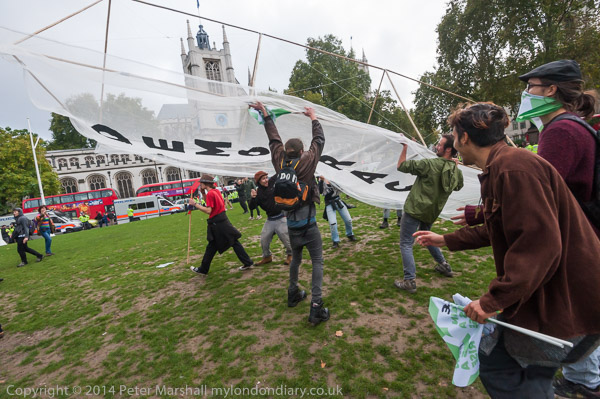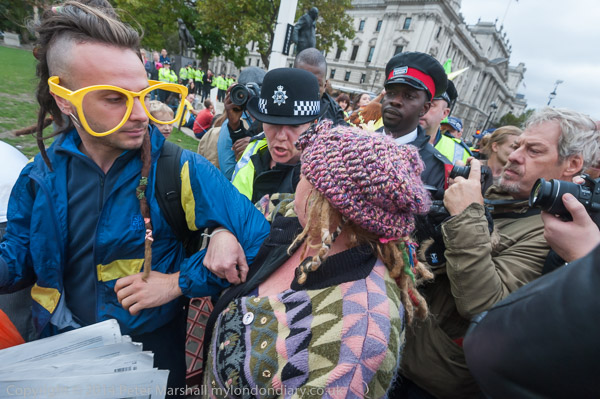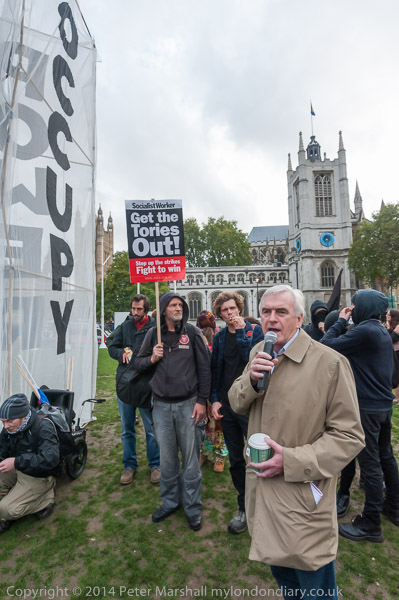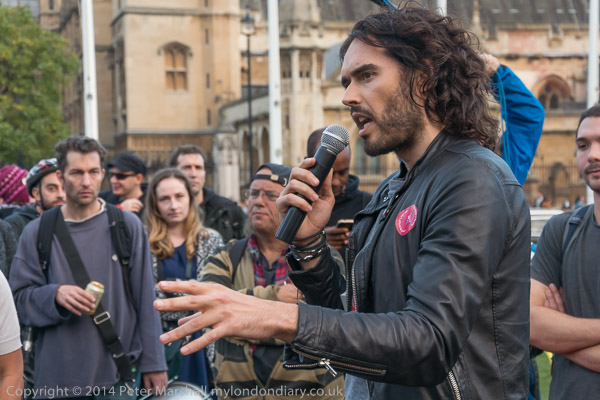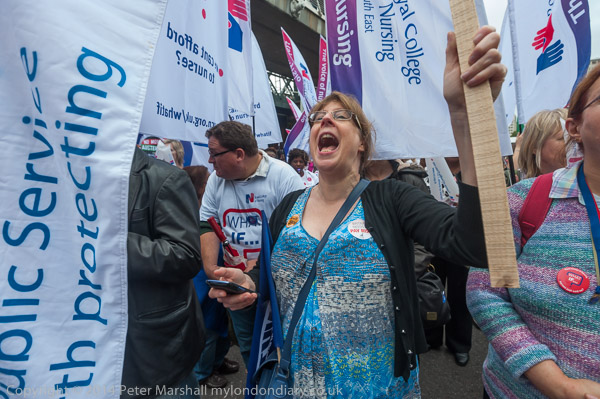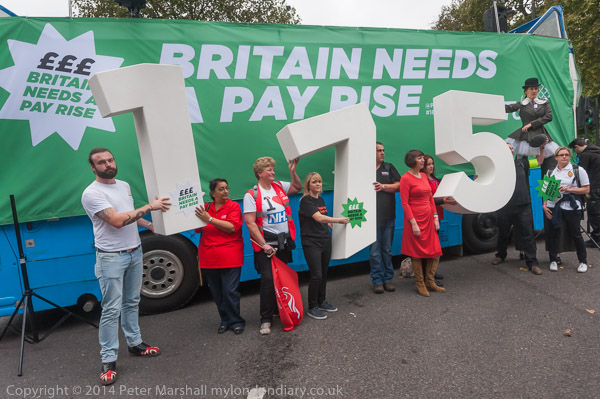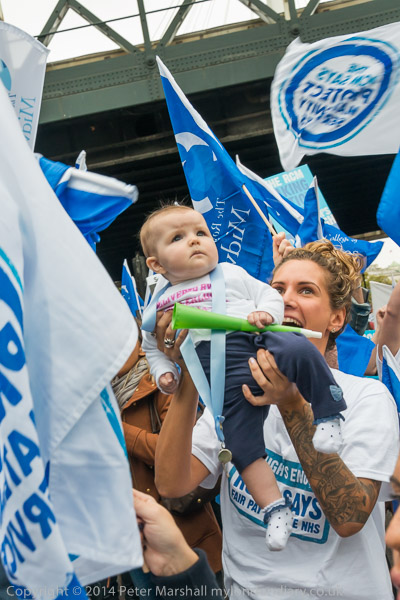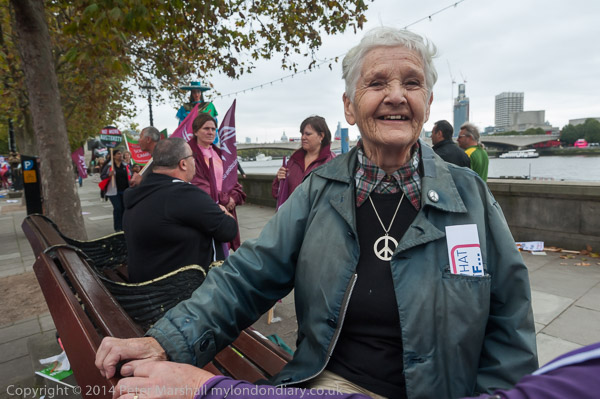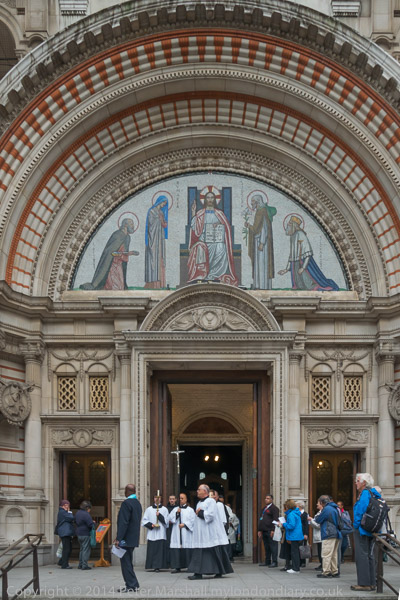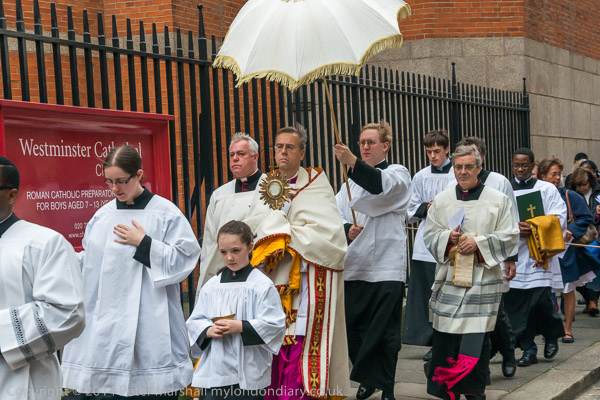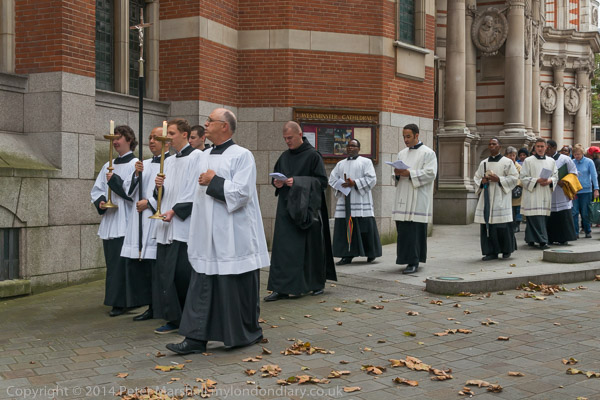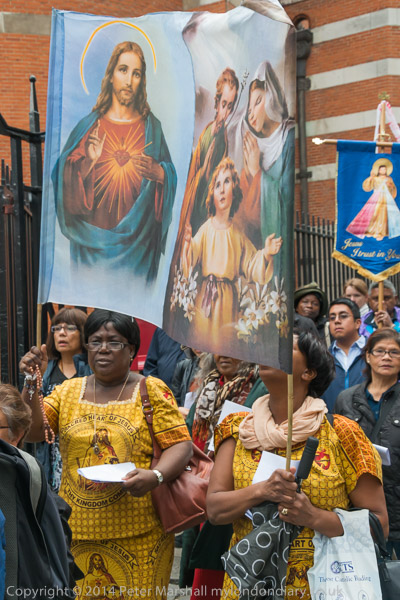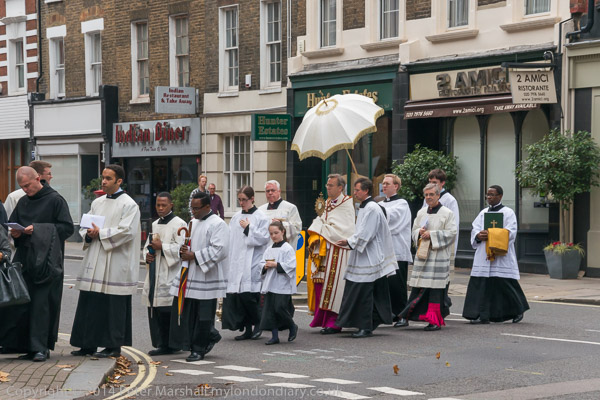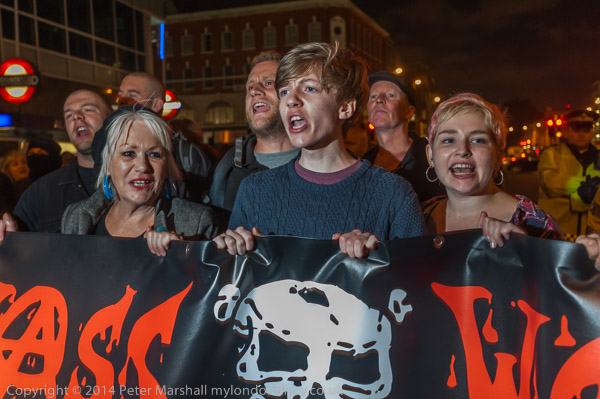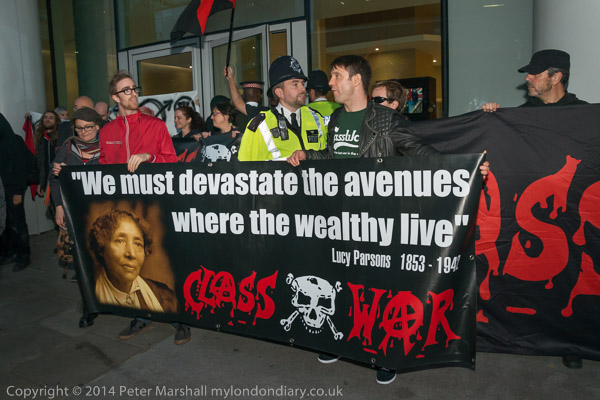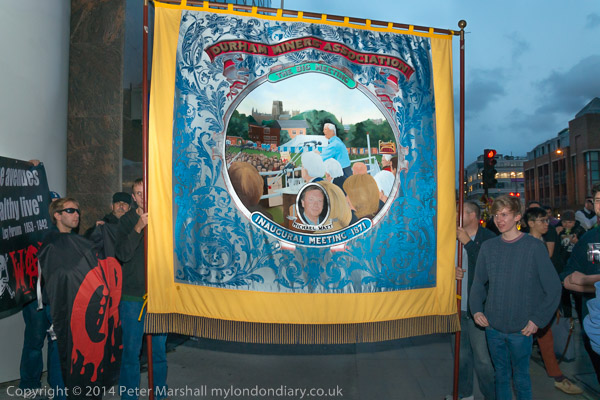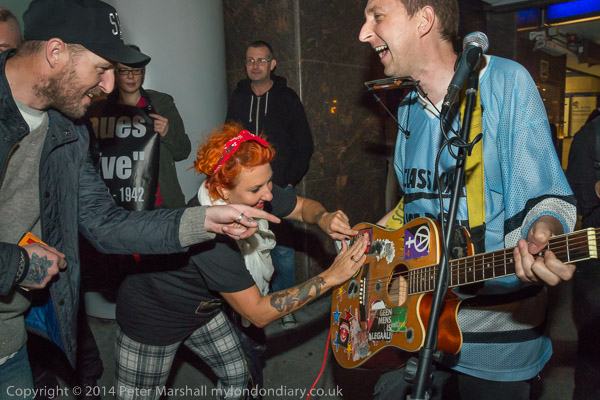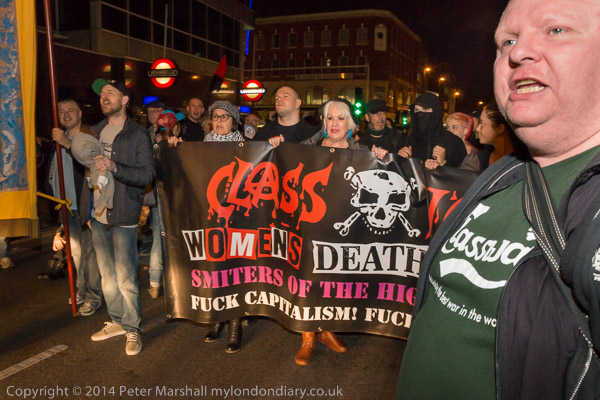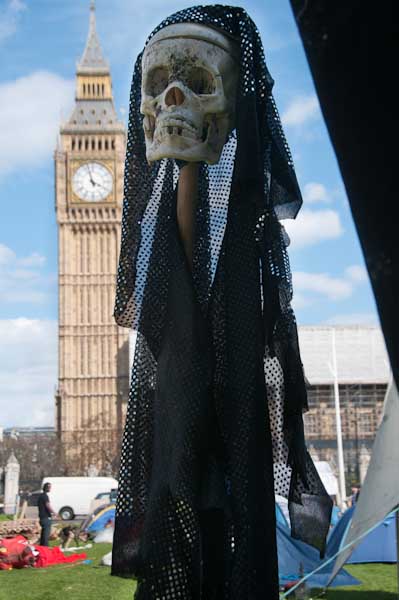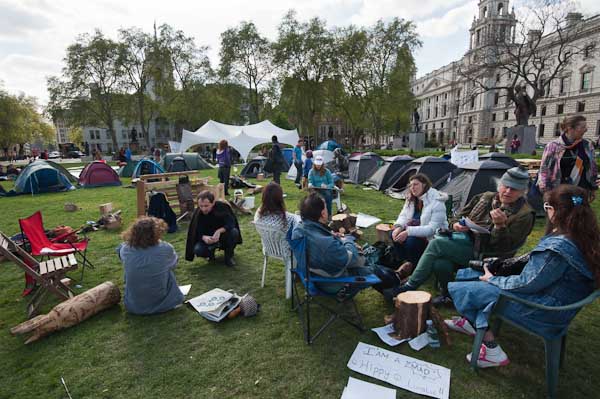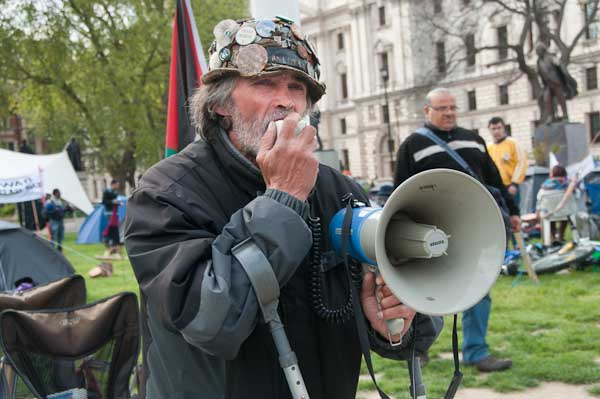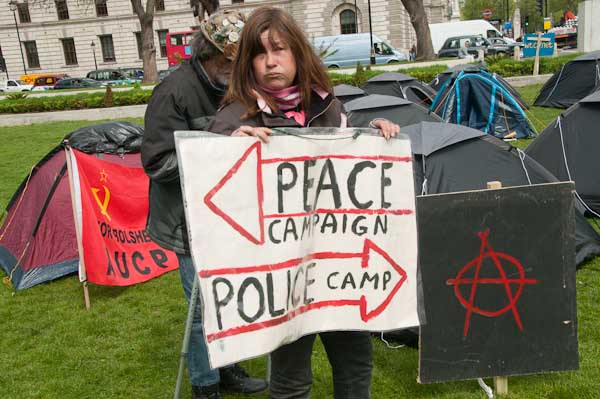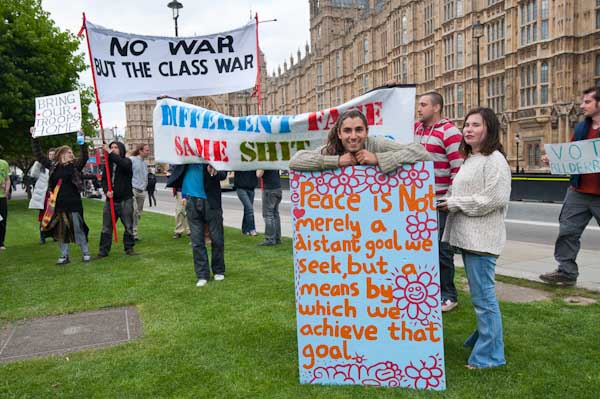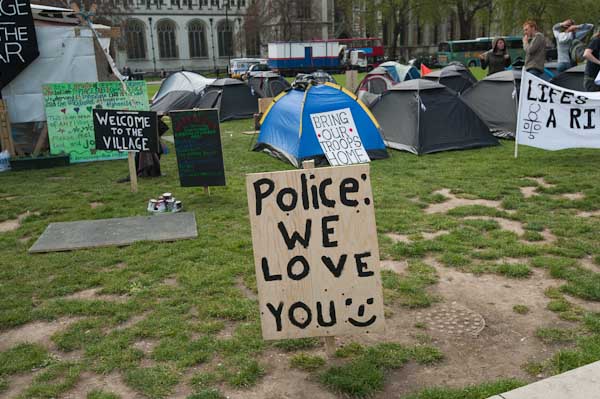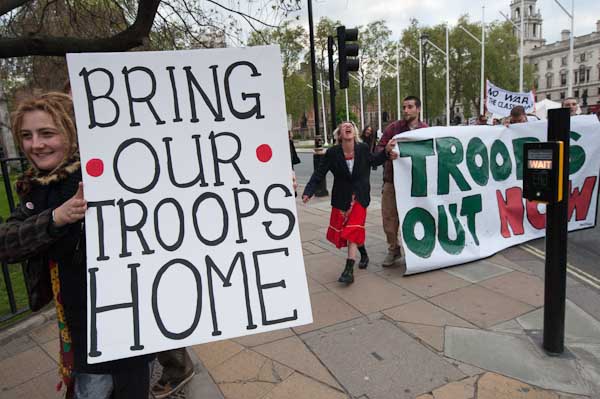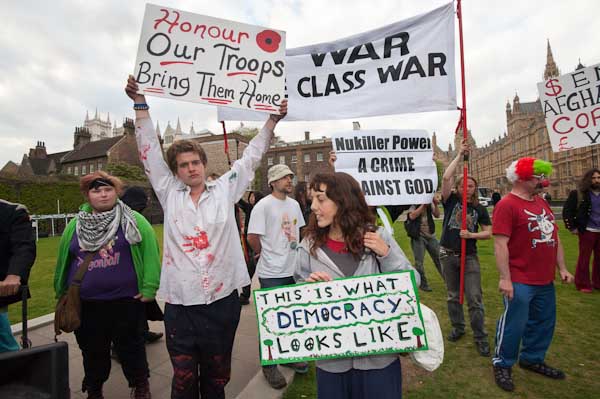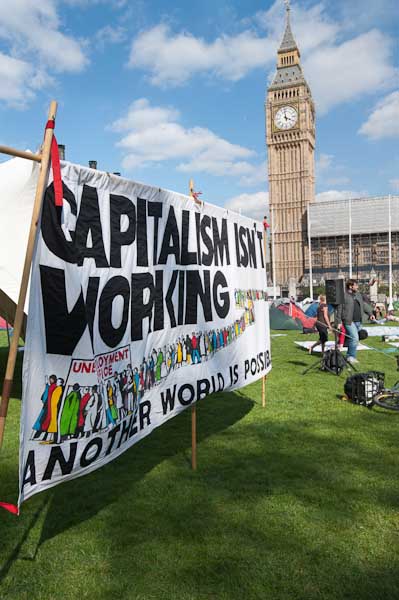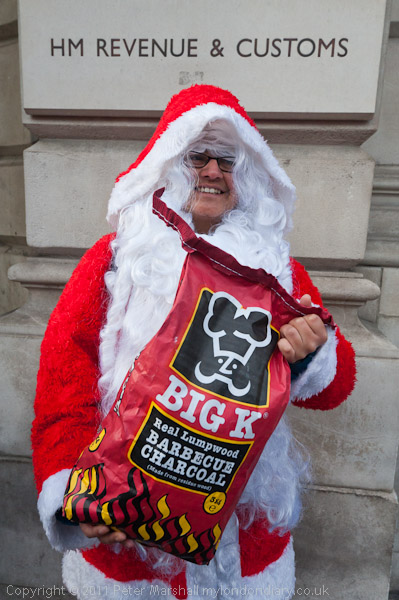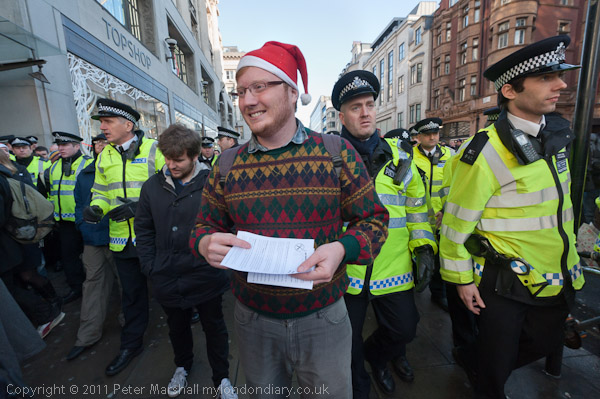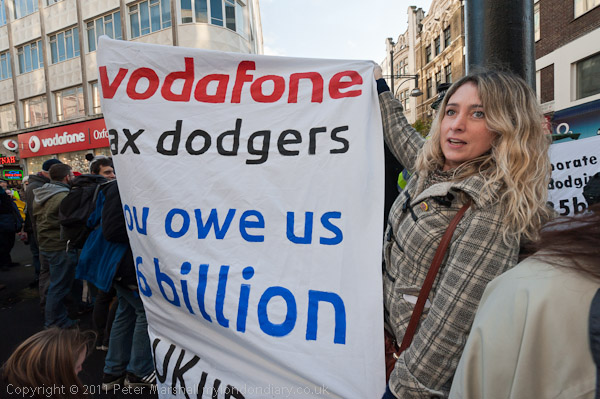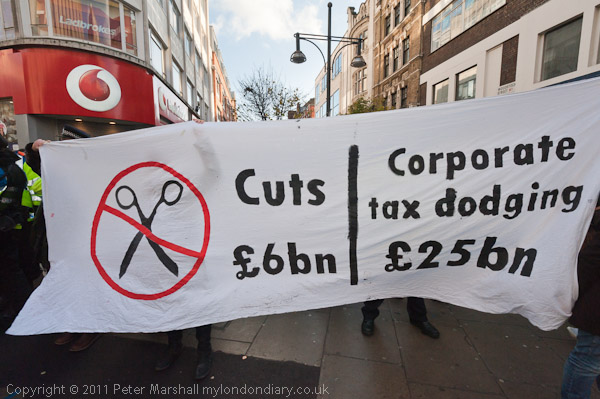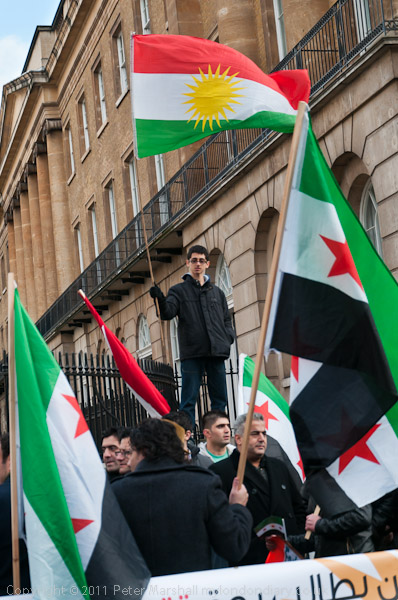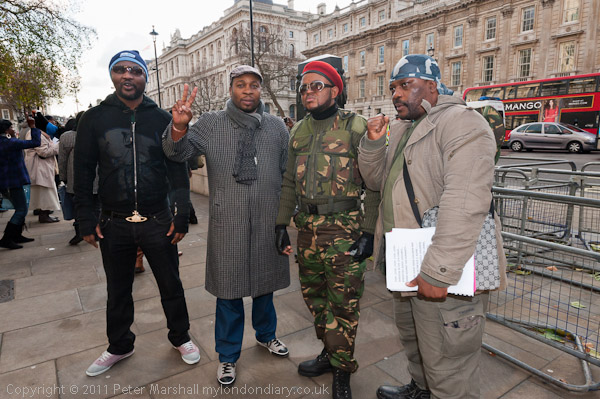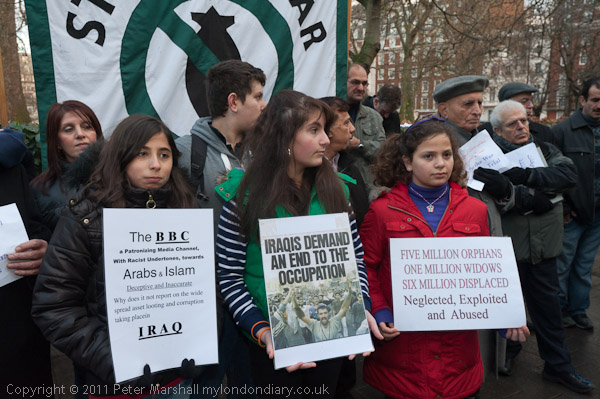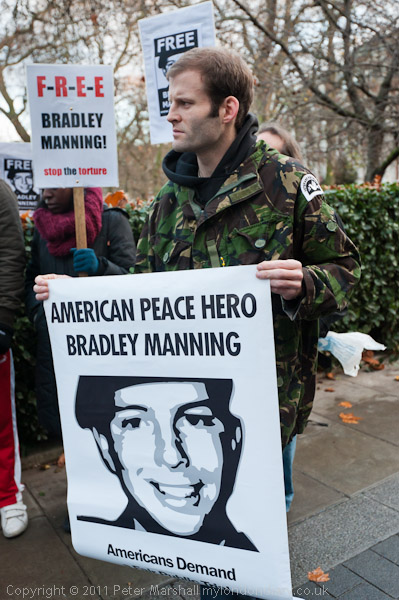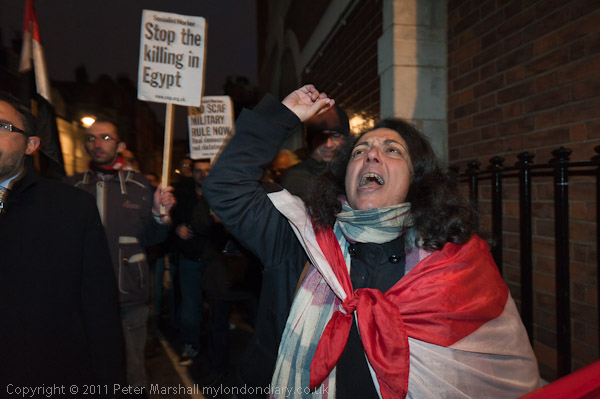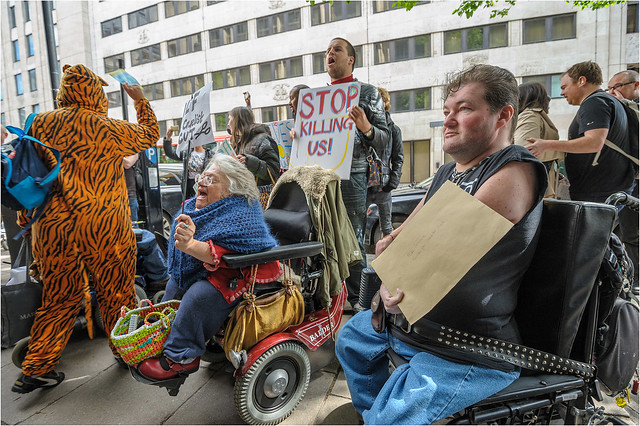No Trident Lobby & Rally: On March 14th 2007 the House of Commons were debating the principle to replace the existing UK nuclear weapons and begin a process to design, build and commission submarines to replace the existing Vanguard-class submarines carrying Trident nuclear missiles with updated systems over the coming 17 years. The New Labour government, led by PM Tony Blair and the Foreign Secretary Margaret Beckett were supported by the Conservatives and one DUP member and won the final division by 408 votes to 160.

Voting against were many Labour MPs and almost all the Liberal Democrats, SNP and other minority parties, although there were a few absentees.

Around Parliament Square there was a day of protest by Greenpeace and others with the main CND rally called for 5pm and continuing into the evening. Here is the account I wrote of the day for My London Diary – with the usual minor corrections and a few of the pictures I posted – more are still on My London Diary
No Trident Lobby & Rally – Parliament Square, London
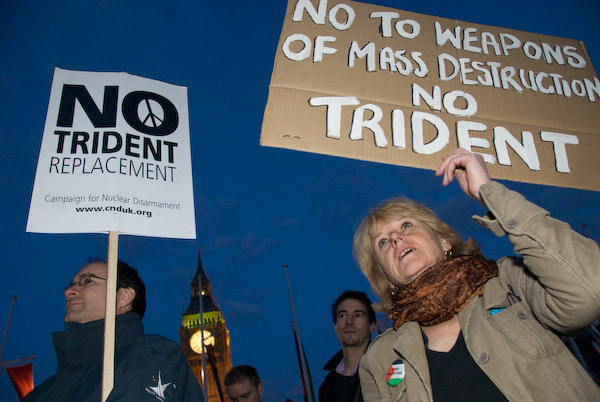
I missed Bianca and Annie and the others, but I didn’t miss them as there was plenty else going on. As I walked over Westminster bridge there was the banner flying on the crane in front of the houses of parliament, and there were quite a few people stopping to look at it.

Later, Greenpeace activists got on their bikes and cycled across Westminster Bridge to Parliament Square, where they were stopped by police and threatened with arrest unless they left the roadway and moved onto the square. After a while they all did, many cycling away after a few minutes to cycle around London before joining the ‘fish on a bicycle‘ critical mass that arrived back at the square a few hours later, and got the same ‘off your bike‘ treatment from the police.

The square started to fill up rather more from around 5pm when a silent protest attended by a couple of hundred took place in the far corner of the square. By the time the speeches started at 6.15 there was a respectable crowd, perhaps around 500, but people were still arriving and with the addition of the cyclists there were perhaps closer to a thousand present.

A brief attempt by Greenpeace to protest on the pavement in front of the Houses Of Parliament took the police by surprise, but the group were soon escorted back across the road.


Throughout the day there had been plenty of signs of the personal vendetta between some Met officers and the regular protesters in the square. Two hapless officers appear to have been deployed just to stand in front of one fluorescent pink placard, and there were some incidents of minor harassment. The injunction thrown out by the judge at Southwark Court recently showed how the police are wasting our money in this respect.
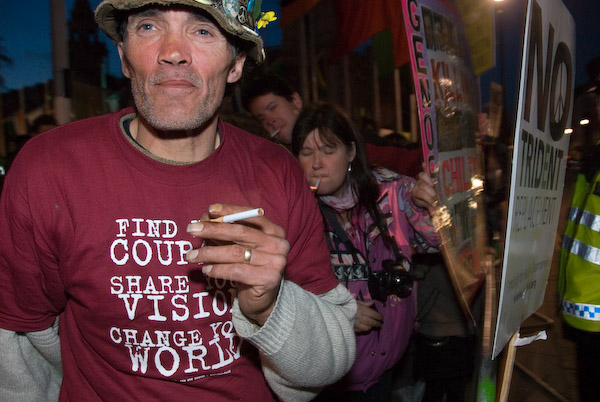
Apparently the latest approach to try and remove the protesters from the square comes from London Mayor Ken Livingstone who is worried about the grass being damaged by the tents there. As I remarked when this was mentioned, “grass regenerates, dead children don’t.” Perhaps we should start a ‘Brian [Haw] For Mayor‘ campaign.

Several Labour MPs came out from the house to address the meeting, along with many activists. Bruce Kent started his speech by thanking Brian Haw for allowing the demo to use his back garden, and Brian later came from his protest at the front of the square to address the meeting.

This time the government got its vote, but there will be later occasions to oppose Trident, as well as the continuing actions at Faslane which those at the demo were urged to take part in.
Trident replacement is still continuing in 2025, with the government being committed to the building of four replacement submarines by the early 2030s and an extension to the life of the Trident missiles potentially to the early 2060s as well as work taking place now to produce replacement nuclear warheads in the 2030s. It is an important support to the UK arms industry but of little or no military consequence with its obscene cost threatening our ability to defend the country by conventional means and it remains – like all nuclear weapons – a definite threat to the peace and future of the world.
Many more pictures on My London Diary beginning here.
Flickr – Facebook – My London Diary – Hull Photos – Lea Valley – Paris
London’s Industrial Heritage – London Photos
All photographs on this page are copyright © Peter Marshall.
Contact me to buy prints or licence to reproduce.
